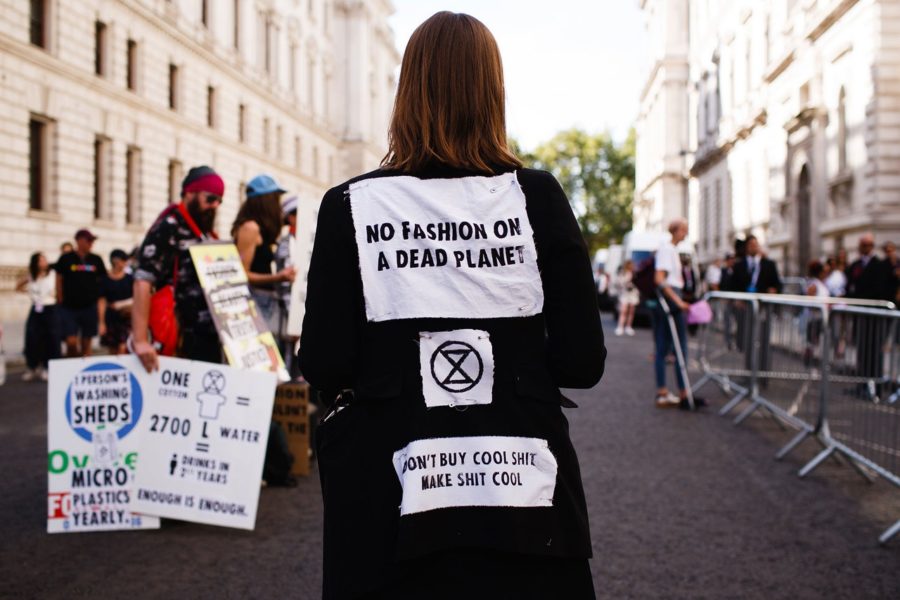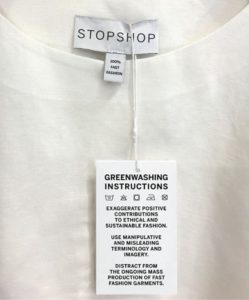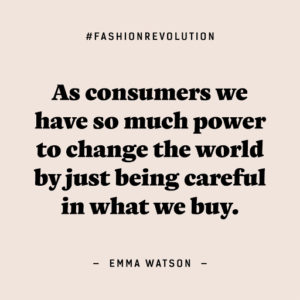10th March 2021 Skopje, North Macedonia
Sustainability Sells

Almost everyone is aware that we need to live as much as we can sustainably. Fashion choices are a big part of it. Maybe you have decided to buy more second-hand clothes or tried to go one month without buying anything new. Or you have decided that from now on, you will only buy clothes from sustainable fashion brands. The decision is yours.
What we currently call “sustainable fashion” is actually fashion that is trying to challenge the status quo. Fashion that is created by people who care deeply and who want to help create a better future for the planet, people, and animals. Fashion that fearlessly innovate or is getting back to natural fibbers and dyes and mending clothes. Fashion that is made by artisans and workers in a safe and clean factory who are being paid fairly.
In the past two years the terms “eco-friendly”, “recycled” and “sustainable” have been falsely overused by so many brands that they have almost lost their authentic meaning. Sustainable as a word has become a grey area and is destroyed by green washers doing their marketing.
Greenwashing 101

The main definition of greenwashing is when a company or organization spends more time and money on marketing themselves as environmentally friendly than on minimizing their environmental impact. It is a deceitful advertising gimmick intended to mislead consumers who prefer to buy goods and services from environmentally conscious brands.
Social media are the perfect place for that. Posting about being anti-fast fashion on World Earth day may seduce followers that a certain brand is sustainable. But there are people that would carefully look at what the brand is saying about the environment when there is not a specific hashtag to use or are the campaigns supported by celebrities and influencers who regularly talk about the environmental consequences of fast fashion.
In the future sustainability should not be just a marketing catch. Instead it should be the basic building block of every brand and company and we need to treat planet Earth like every day is an Earth day.
Big brands usually release “sustainable” or “conscious” collections while operating under fast-fashion business models that are environmentally detrimental and exploitative of workers. We cannot have sustainability without ethics. We can’t be doing a ‘conscious’ thing for the planet if our recycled t-shirt was made by women who don’t earn fair living wages. These collections are mostly marketing to prevent you from looking at the bigger picture, which is overconsumption.
Green marketing
There is a fine line between green marketing and greenwashing. Unlike greenwashing, green marketing is when companies sell products or services based on legitimate environmental positives. Green marketing is generally practical, honest and transparent.

Sustainable fashion is not just about using eco-friendly materials, it is about rethinking how the whole industry works, foreseeing social consequences and environmental impacts in the long run.
More and more brands and retailers nowadays are trying to design for circularity and develop business models to match. The many viable resale options also demonstrates that consumers and retailers have an interest in acting on or promoting circularity. There is beginning to be an increased adoption of innovative materials and processes that solve many environmental problems.
The small and independent businesses are actually the pioneers towards more sustainable and ethical practices but are humble about their sustainability efforts and, above all else, remain committed to continual improvement and learning. For them, part of their ethos is always steeped in transparency, education (educating themselves and their customers) and searching for new solutions and ways to be a sustainable business.
Probably the solution is to stop obsessing over the term sustainability and rather to focus on the actions a brand might take to have a positive impact on people and the planet. I would like to see a localization of fashion systems, removing the power from international brands and bringing the making, mending and storytelling of clothing back into communities. And in the end, my message to you, dear reader, is to buy less but better, buy garments produced locally that you will treasure and gladly mend when broken. Do not fall for all the greenwashing propaganda.
Note: British Embassy Skopje offers its blog platform for guest posts. The views expressed in the guest posts are those of the authors.
